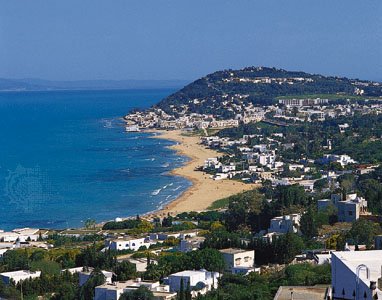Tunisia’s coastline, the very jewel of its tourism and a pillar of its economy, is under silent assault. The waves that lap its famous beaches are not just a source of beauty and recreation; they are now agents of a slow-motion crisis. As a recent World Bank report confirms, the country stands among the most affected in the world by marine erosion, a creeping threat that jeopardizes our natural heritage, our infrastructure, and our future.
The numbers are stark and should serve as a wake-up call to the nation. With 260 of its 670 kilometers of coast seriously eroded, the advance of the sea is no longer a theoretical concern. As environmental expert Mehdi Laâbdeli warns, it is critically undermining ecosystems and urbanized areas alike. But the assault is twofold. Alongside the physical disappearance of the shoreline, the quality of the water itself is degrading. The finding that 71% of tested seawater fails to meet international standards is a damning indictment of chronic pollution and unchecked urbanization.
The causes, as outlined by specialist Amel Jerad, are a familiar and tragic litany: rising sea levels, uncontrolled coastal development, and persistent pollution. We have seen the warning signs for years, yet the response has often been fragmented, a case of treating symptoms rather than the disease.
There are attempts to fight back, of course. The work of the coastal protection agency, such as the delicate process of sand recharge in Port El Kantaoui, is a necessary holding action. However, as its interim manager Mehdi Belhaj rightly notes, these are complex, time-consuming solutions. They are akin to placing a bandage on a wound that requires major surgery.
This is the triple challenge we face: a retreating coast, polluted waters, and the overarching threat of climate change. It demands more than piecemeal projects. It requires a fundamental shift in policy and public awareness. The coastline is not just a strip of sand; it is a vital economic artery and a fragile ecosystem. Its preservation must be elevated to a national priority, championed by coherent, long-term strategies that go beyond electoral cycles.
The time for half-measures is over. We must confront the root causes with courage, regulating coastal construction, investing in sustainable waste management, and integrating climate resilience into every aspect of coastal planning. The sea is at our gates. We must decide whether we will retreat from it in disarray or stand firm with a unified, intelligent strategy to safeguard our heritage for generations to come. The future of Tunisia’s coast, and by extension its prosperity, hangs in the balance.
TunisianMonitorOnline (NejiMed)




